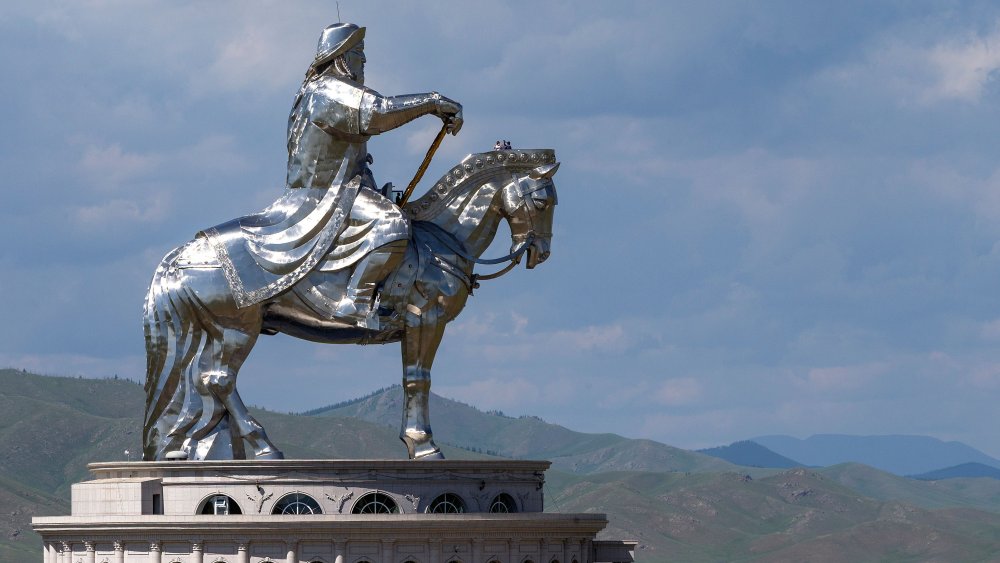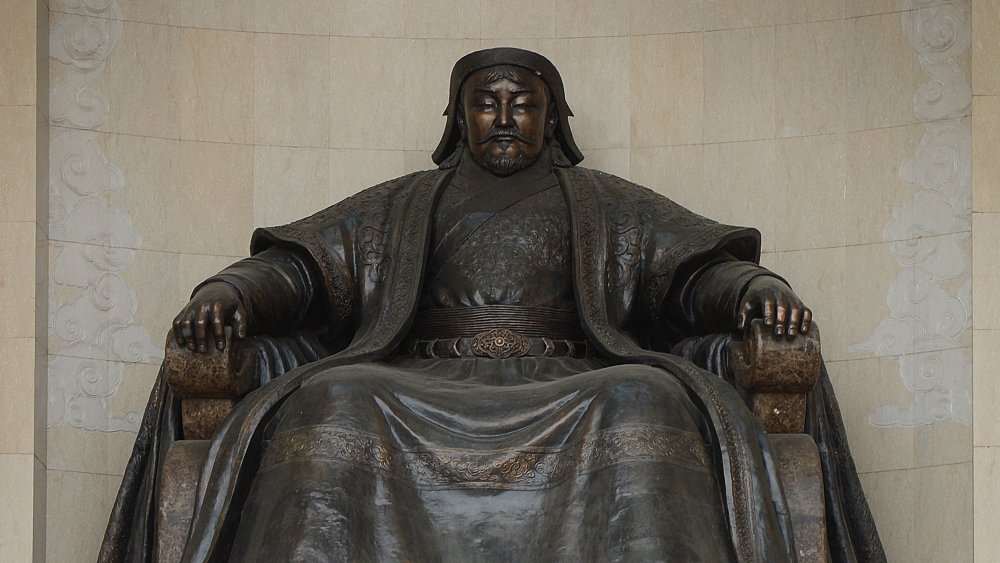We Now Understand Why The Mongol Empire Crumbled
For the better part of the 13th century, the Mongols were a horseback riding cultural and military juggernaut of the Eastern hemisphere. As Ancient History Encyclopedia points out, there was a time when their holdings stretched across one fifth of the globe, with Mongolians on one side of the empire fighting off samurai while their brothers on the other side contended with Teutonic knights. Their accumulated kingdoms spanned from the easternmost edge of modern China to your mom's house.
Still, nothing lasts forever, and Genghis Khan's empire, while still famously genetically prevalent, has since crumbled. The country now known as Mongolia constitutes a mere 605,000 square mile area and a smattering of decidedly un-warlike stripmall barbecue joints. What happened to this once-illustrious house (well, yurt) of assimilation, decimation, and ferocity?
To quote the nauseated commentators at any given amateur hot dog eating competition, "it appears they just took in too much too fast."
And I khan't fight this feeling anymore
As National Geographic helpfully points out, the empire that Genghis Khan spent his life amassing was too large for any one person to rule over. After his death, the kingdom was split into four Khanates; smaller, more manageable geopolitical entities, each under the care of one of Khan's progeny. It would be accurate to describe the lineage-based system of rule as "Khan-descending," but ask yourself, would it do anybody any good?
Because of this, the Mongol empire found itself dying in pieces. The longest lasting was known as the Golden Horde, a nation which would last until 1480. The other three fell thanks to constant dynastic disputes and an unwillingness to adapt to new technologies and lifestyles in a world which suddenly found itself more and more covered in Europeans.
It's anticlimactic, in retrospect, to think that one of the greatest political powers of all time was bested not by some grand military gesture or Star Wars-style Death Star run, but rather by decades-long flakiness on the parts of a warlord's descendants. That's history for you, though. Princess Anastasia has been dead this whole time and Steven Seagal probably never worked for the CIA. The world is a let down sometimes.

